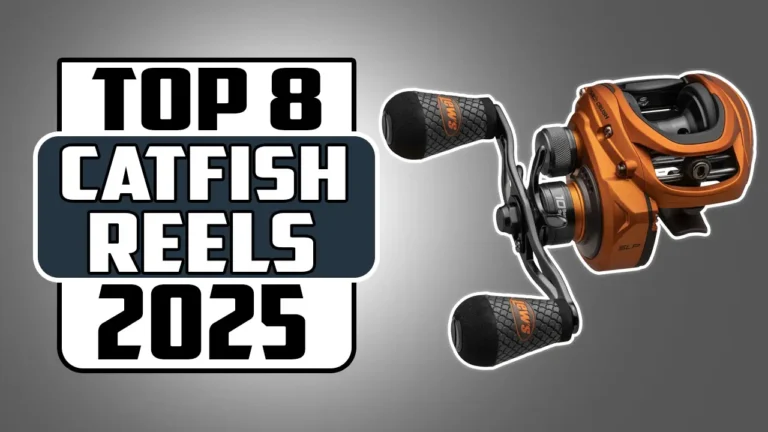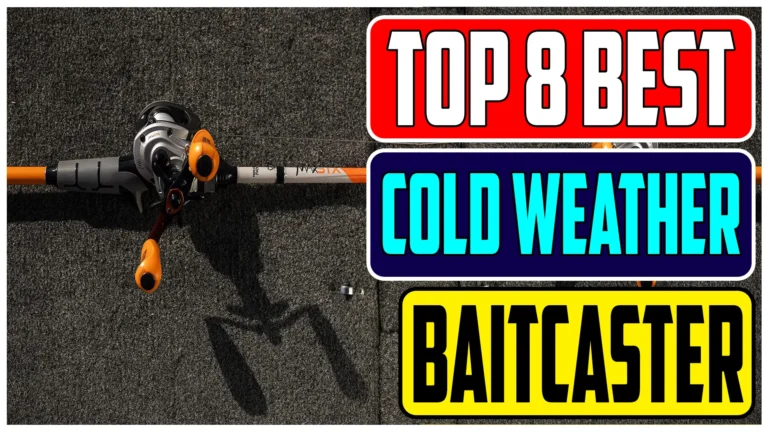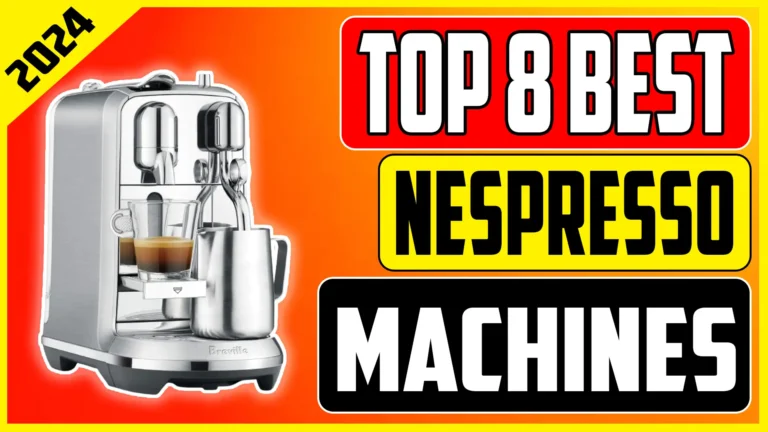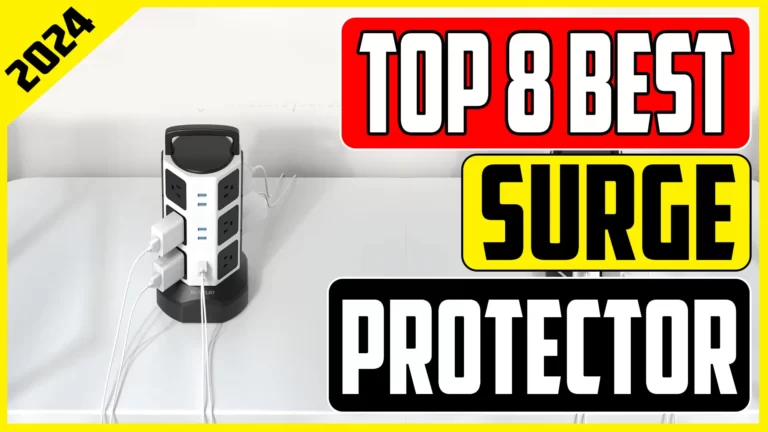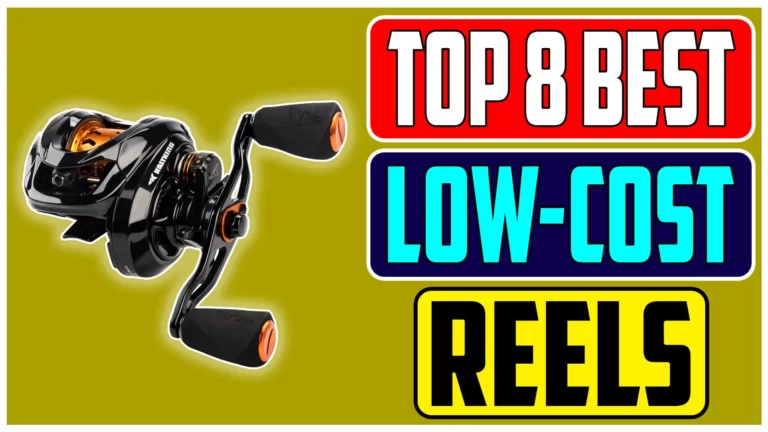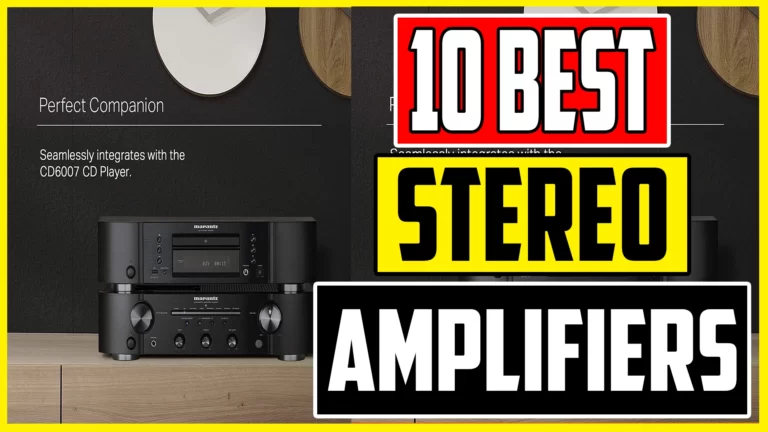Top 8 Best Mini Drones In 2024 | Best Deals & Reviews
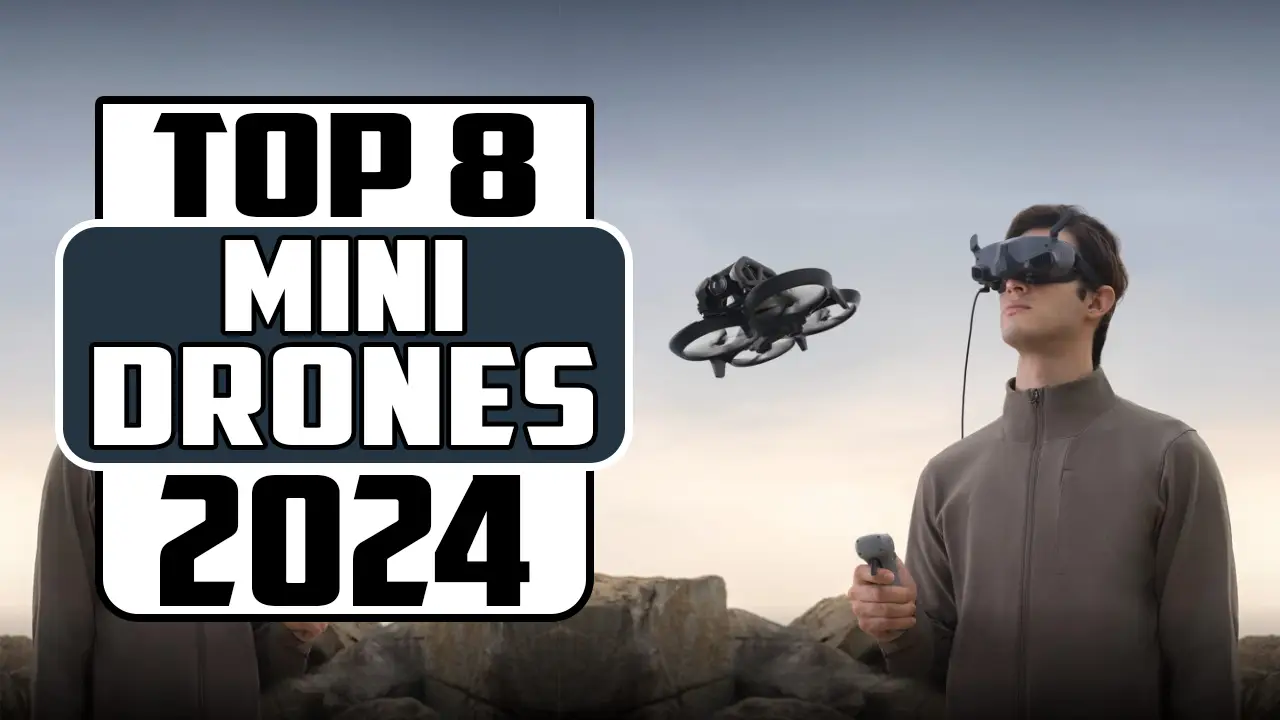
In today’s rapidly advancing world of drone technology, finding the right mini drone that fits both your budget and filming needs can be a daunting task. With an array of options that cater to different levels of expertise, from beginner hobbyists to professional filmmakers, the decision becomes even more complex. This guide narrows down the top mini drones available, providing detailed insights into their features, performance, and suitability for various filming and flying scenarios.
1. DJI 4K Mini Drone
The DJI 4K Mini Drone stands out as the latest and most cost-effective addition to DJI’s Mini series, designed with beginner pilots in mind. Despite its budget-friendly price, this drone doesn’t skimp on quality, offering the ability to capture stunning 4K video at 30 frames per second, enhanced with a 2x digital zoom. For those looking for smoother footage, it also supports 2.7K video at 60 frames per second. Key features include a GPS-guided Return to Home (RTH) function, ensuring the drone safely returns if it loses connection or runs low on battery. Its 3-axis gimbal guarantees cinematic-quality shooting by stabilizing the camera, and its intuitive one-tap takeoff and landing make it easy for novices to use. Additionally, the Mini 4K boasts a long battery life, allowing up to 31 minutes of flight time, making it an ideal choice for extended aerial adventures.
2. DJI Mini 3 Drone
The DJI Mini 3 Drone, currently available at an unbeatable price, comes equipped with the DJI RC remote controller, featuring the DJI Fly App pre-installed and a built-in 5.5-inch HD display. This feature ensures clear viewing even in bright sunlight. The Mini 3 is remarkable for its 1/1.3-inch CMOS sensor and F/1.7 aperture, borrowed from the pricier Mini 3 Pro model, allowing it to capture vibrant 4K HDR video at 30 frames per second, as well as 48-megapixel photos. A standout feature is its True Vertical Shooting mode, where the camera rotates 90 degrees to capture vertical content, perfect for social media platforms like TikTok and Instagram. The standard battery offers a flight time of up to 38 minutes, which can be extended to 51 minutes with the Intelligent Flight Battery Plus, though this adds weight and may require compliance with local aviation regulations.
3. DJI Mini 4 Pro
The DJI Mini 4 Pro is the most advanced mini drone on the market today, offering top-tier features in a lightweight package of under 249 grams. This makes it both regulation-friendly and incredibly portable. Its powerful 1/1.3-inch sensor delivers impressive imaging capabilities, further enhanced by intelligent shooting features like ActiveTrack 360°. This mode is particularly useful for solo adventures, allowing the drone to track and film the subject from various angles while performing complex maneuvers. Additionally, DJI’s latest Vision Assist safety feature provides obstacle anticipation in every direction, making flights safer and more controlled. Whether you’re an experienced pilot or a newcomer, the Mini 4 Pro combines safety, performance, and convenience, making it a worthy investment.
4. Autel Robotics EVO Nano Plus Mini Drone
The Autel Robotics EVO Nano Plus stands out as the top non-DJI option in the sub-250g category, offering a combination of affordability and high-performance camera features. The EVO Nano+ is equipped with a 1/1.28-inch CMOS sensor, which excels in low-light conditions, and a 3-axis gimbal for stable footage. It can capture 50-megapixel images and 4K video at 30 frames per second, providing stunning visual quality. The fixed F/1.9 Leica lens further enhances its imaging capabilities. The drone’s ergonomic controller offers responsive joysticks and a strong transmission signal that remains reliable even when obstacles are present. It also features front, rear, and bottom obstacle avoidance sensors, along with internal cooling fans for both the drone and controller to prevent overheating. Overall, the EVO Nano+ is a strong contender for anyone looking for a high-quality, non-DJI mini drone.
5. DJI Mini 2 SE Drone
The DJI Mini 2 SE is the best budget option in this guide, offering exceptional value at just $400. Despite its low price, it delivers impressive specs, including 2.7K video recording at 30 frames per second and 1080p resolution at 60 frames per second. Weighing less than 250 grams, it’s highly portable and exempt from many flying restrictions, with no need for registration with flight authorities in most regions. Despite its lightweight design, the Mini 2 SE can handle strong winds, maintaining stability whether flying or hovering. The drone also includes intelligent flight modes and safety features like Return to Home, which ensures it returns safely if the controller loses connection or the battery runs low. With a maximum flight time of 31 minutes and a range of up to 10 kilometers, the DJI Mini 2 SE is an excellent choice for beginners seeking an affordable and reliable drone.
6. DJI Mavic 3 Pro
The DJI Mavic 3 Pro, while not exactly a mini drone, is included in this guide due to its relatively small size and portability for a professional-grade drone. It’s the best option for those who require extended video recording sessions, thanks to its impressive 43-minute flight time and the ability to fly up to 28 kilometers on a full charge. The Mavic 3 Pro features three different focal lengths, including a main lens with a Hasselblad sensor, capable of capturing 5K resolution footage at 50 frames per second in 10-bit color, along with 4K slow motion at 120 frames per second, and 20-megapixel RAW stills. The other two lenses, a 70mm medium telephoto and a 166mm telephoto, also support RAW files and 4K video at up to 60 frames per second. This versatile camera setup makes the Mavic 3 Pro ideal for capturing high-quality footage in a variety of scenarios.
7. DJI Avata Pro-View Combo Mini Drone
The DJI Avata Pro-View Combo Mini Drone is a premium option designed for an immersive First Person View (FPV) experience. This drone, although pricey, offers a unique flying experience, where footage is viewed through sharp OLED goggles with zero latency, creating a virtual reality feel. The included DJI Motion controller is designed like a hand-grip joystick, allowing for intuitive control through hand movements, mimicking the experience of flying a fighter jet. The Avata is perfect for those who want to feel fully engaged in their flying experience, offering unparalleled FPV footage that makes you feel as if you’re in the action. This drone is ideal for consumers seeking a high-quality FPV experience, combining cutting-edge technology with a highly immersive flying style.
8. GEPRC Cinebot30 HD Mini Drone
The GEPRC Cinebot30 HD Mini Drone is a top-of-the-line FPV drone designed for professional filmmakers and hobbyists alike. Featuring the advanced DJI O3 Air Unit, it captures stunning 4K video at 60 frames per second, delivering crisp and vibrant footage. Its compact 3-inch frame is optimized for agility and precision, making it suitable for both indoor and outdoor filming. The Cinebot30’s powerful motor setup ensures stable flight and reliable performance, while its lightweight carbon fiber construction enhances durability and minimizes vibrations, providing a steady camera feed. This drone also includes a comprehensive array of features, such as precise flight controls and advanced safety mechanisms, making it an excellent choice for those looking to elevate their aerial cinematography. Whether you’re navigating tight spaces or capturing sweeping landscapes, the Cinebot30 HD O3 offers a versatile and high-performance flying experience.
Buying Guide for Mini Drones
When choosing a mini drone, it’s essential to consider several key factors to ensure you make the right decision. Whether you’re a beginner or an experienced drone pilot, this buying guide will help you understand the features and specifications that matter most.
Camera Quality and Resolution
The camera is one of the most critical aspects of a drone, especially if you’re interested in aerial photography or videography. Look for drones that offer at least 2.7K resolution, though 4K is preferable if you want the highest quality footage. Consider the frame rate as well, as higher frames per second (FPS) provide smoother video. Some drones also offer features like HDR, RAW photo capabilities, and multiple lenses for different focal lengths.
Flight Time and Battery Life
Flight time is a crucial factor, as it determines how long you can keep your drone in the air before needing to recharge. Most mini drones offer between 30 to 40 minutes of flight time per battery. Some models, like the DJI Mini 3, offer extended flight time with optional battery upgrades. Keep in mind that additional batteries can be purchased separately if you require longer sessions.
Portability and Weight
Portability is another key consideration, particularly if you plan to travel with your drone. Drones that weigh less than 250 grams are generally easier to carry and may be exempt from certain regulatory restrictions. Lightweight drones are also more convenient for spontaneous adventures, as they can be quickly deployed and stored.
Ease of Use and Controls
For beginners, ease of use is essential. Look for drones with intuitive controls, one-tap takeoff and landing, and automatic Return to Home features. Some drones also offer intelligent flight modes, like DJI’s ActiveTrack 360°, which can automatically follow and film a subject. If you’re interested in FPV (First Person View) flying, consider drones that offer specialized controllers or goggles for an immersive experience.
Durability and Build Quality
Durability is important, especially if you plan to fly your drone in challenging environments. Drones with carbon fiber frames or robust plastic constructions tend to withstand impacts better. Additionally, features like obstacle avoidance sensors can help prevent crashes, making your drone more reliable and long-lasting.
Price and Budget
Finally, your budget will play a significant role in your decision. While high-end drones offer advanced features, there are many budget-friendly options that provide excellent value. Determine how much you’re willing to spend and look for drones that offer the best combination of features within your price range.
FAQs
What is the best mini drone for beginners?
The DJI Mini 2 SE is an excellent choice for beginners. It offers user-friendly controls, intelligent flight modes, and a lightweight design, making it easy to operate and perfect for those new to drones.
Do I need to register my mini drone with the FAA?
In the United States, drones weighing less than 250 grams, such as the DJI Mini 4 Pro, generally do not require registration with the FAA. However, it’s always a good idea to check local regulations as rules can vary depending on your location.
How important is obstacle avoidance in a mini drone?
Obstacle avoidance is a valuable feature, especially for beginners or when flying in complex environments. It helps prevent crashes by detecting and avoiding obstacles, making your flying experience safer and more enjoyable.
Can I use my mini drone for professional photography?
Yes, many mini drones, such as the DJI Mavic 3 Pro and GEPRC Cinebot30 HD, offer professional-grade camera capabilities, including high-resolution video, RAW photo capture, and multiple lenses. These features make them suitable for professional photography and videography.
What is the difference between FPV and traditional drone flying?
FPV (First Person View) flying allows you to see from the drone’s perspective in real-time through goggles or a screen, providing an immersive experience. Traditional flying involves watching the drone from the ground and controlling it based on your line of sight. FPV is ideal for capturing dynamic footage and performing acrobatic maneuvers.
How do I extend the flight time of my mini drone?
To extend flight time, consider purchasing additional batteries or opting for drones that offer battery upgrades, like the DJI Mini 3 with its Intelligent Flight Battery Plus. Additionally, reducing weight and minimizing the use of power-intensive features can help prolong flight time.
Are mini drones good for indoor flying?
Yes, many mini drones, such as the GEPRC Cinebot30 HD, are designed for both indoor and outdoor use. Their compact size and precise controls make them ideal for navigating tight spaces indoors.
What should I look for in a drone controller?
A good drone controller should be ergonomic, responsive, and offer reliable connectivity. Controllers with built-in screens or compatibility with mobile apps provide a more seamless flying experience. For FPV drones, consider controllers that are compatible with goggles for an immersive experience.
Conclusion
Selecting the right mini drone depends on your specific needs, whether it’s for casual flying, professional photography, or an immersive FPV experience. By considering factors like camera quality, flight time, ease of use, and budget, you can find a drone that matches your requirements and enhances your aerial adventures.








